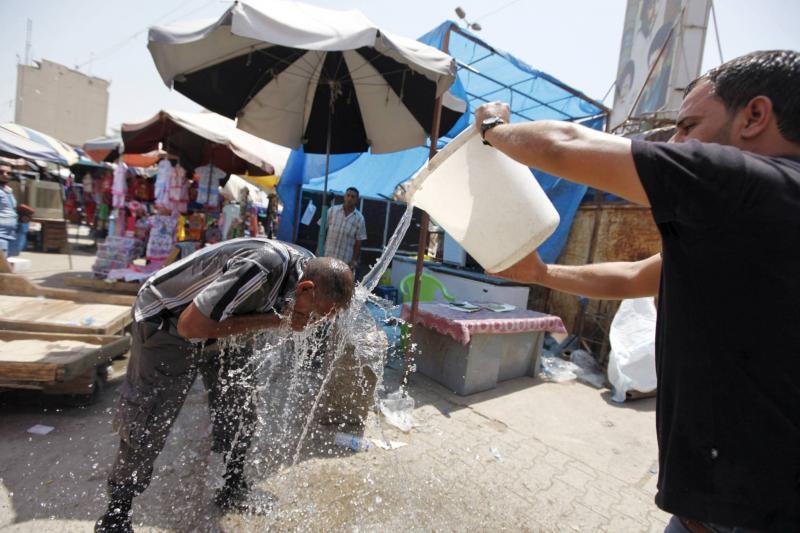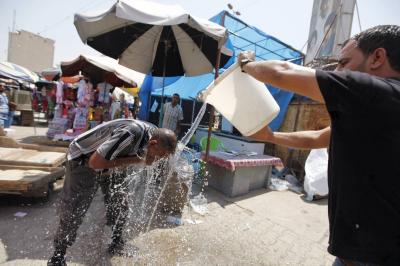A charity organization dedicated to assisting the poor in Iraq has confirmed that summer heat increases the problems faced by the impoverished by 70%, particularly concerning services, social issues, and violence. Ilham Qadoori, the head of the Inspiration Organization for the Care of the Poor, stated in an interview with "Baghdad Today" that the organization conducted a study in several poor neighborhoods to assess the impact of the basic services crisis, such as electricity, water, and sewage, on their lives during the summer season.
The results were shocking, showing that the rate of problems surged by 70%, especially domestic violence and fights, often over trivial reasons. Qadoori emphasized that the "curse of summer," referring to the lack of services, severely affects the poor in Iraq, with divorce rates in impoverished areas rising by no less than 20% compared to other months.
Qadoori noted that poverty, unemployment, and pressure from service shortages exacerbate the psychological stress on heads of families, making them prone to explosive situations at any moment. She pointed out that the alleys of the poor are like ticking time bombs, as they cannot remain silent about their plight forever amidst chronic deprivation and indescribable hardships.
Fadhil Al-Gharawi, the head of the Strategic Center for Human Rights in Iraq, reported yesterday (Monday) that there were 25,536 divorce cases recorded in the first four months of 2024. Al-Gharawi explained in a statement that January saw 7,453 divorce cases, February had 6,324 cases, March recorded 6,222, and April saw 5,537 divorce cases.
He highlighted that the divorce rate increases in the summer compared to other seasons. According to scientific studies, rising temperatures heighten feelings of irritability and tension, leading to a rise in divorce cases. Al-Gharawi pointed out that increased body temperature raises blood pressure and makes individuals susceptible to anxiety and emotional instability, negatively impacting couples' emotional and marital compatibility.
Al-Gharawi also identified key factors contributing to the rise in divorce cases, including lack of marital education, miscommunication between spouses, domestic violence, interference from family and friends, early marriages, economic conditions, increased rates of infidelity, misuse of communication, weak religious convictions, polygamy, a decline in social values, family disintegration, and the presence of multiple families in one household, which intensifies conflicts.
He urged the government to launch national awareness campaigns in collaboration with religious, social, and educational bodies, as well as civil society organizations and media outlets, to mitigate the rise in divorce cases. Furthermore, he called on the government to provide low-cost housing options or subsidized land with interest-free loans for newlyweds, as well as job opportunities to alleviate unemployment and housing issues.




